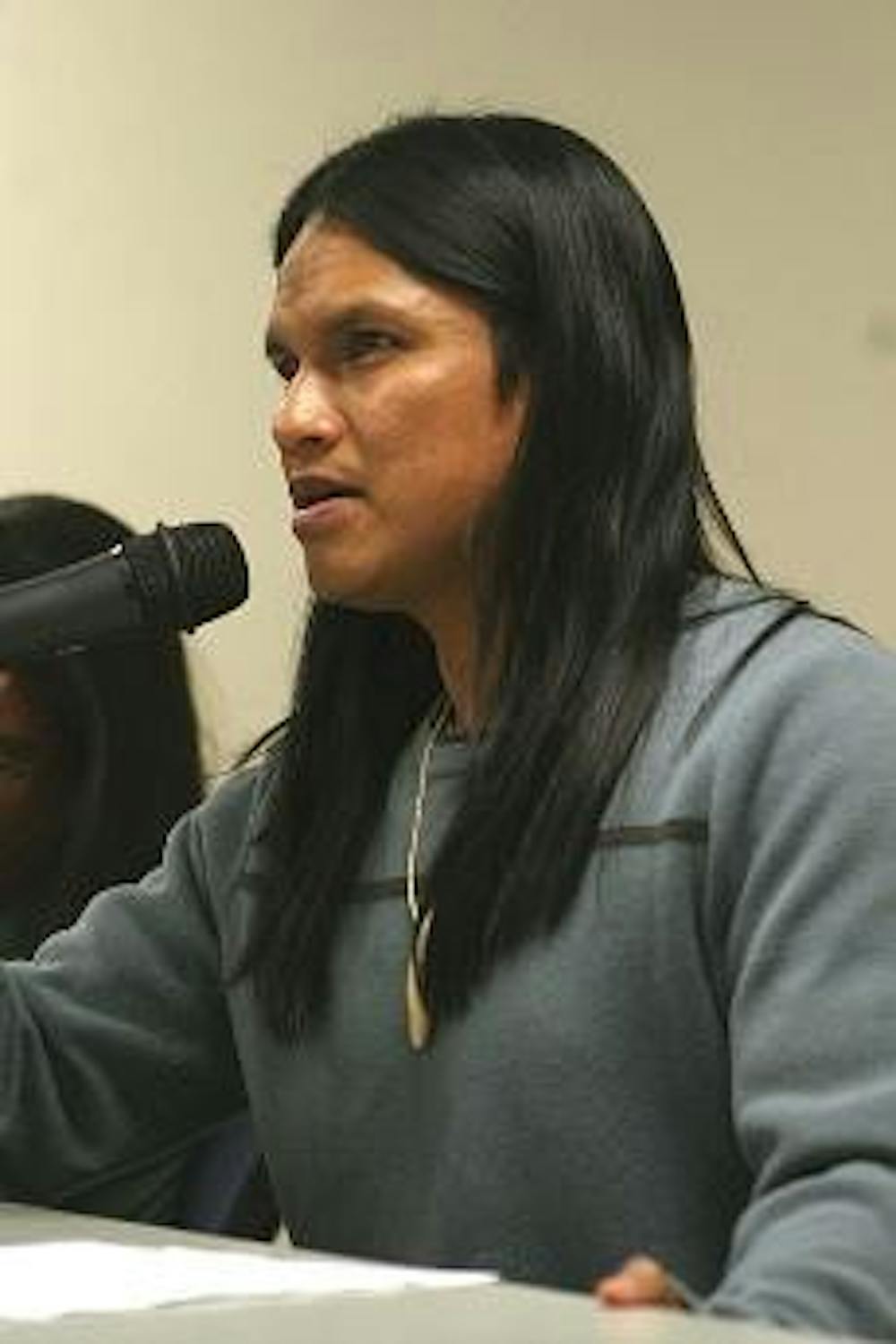While getting a taste of Ecuadorian food and music Thursday, AU students and staff heard the story of how a small indigenous group of Ecuadorians armed only with canoes and determination stood up to a large oil company armed with guns and explosives.
The event, titled "Indigenous Resistance in the Ecuadorian Amazon," was presented from two perspectives - one from the AU students who traveled there as part of an Alternative Break trip, and the other from a member of that community, Elvis Paul Toala.
The Alternative Break trip was an authentic and inspiring experience, according to two members of the group, Bevin Kloepper, a sophomore in the School of International Service, and Liliana Martinez, a sophomore in the College of Arts and Sciences.
Among other trips, the students traveled into the Amazon to Sarayacu, the focus of Thursday evening's event. As Kloepper said and Toala later reiterated, the people there "depend on the land," but oil companies leave environmental damage and their actions against the people constitute a human rights violation.
The trip to Ecuador was from May 15 to 30 and was attended by four graduate students and five undergraduates.
Toala, a representative from Sarayaco, spoke about his community's actions against the Argentinean oil company, CGC. He spoke in Spanish due to his limited knowledge of English, and his speech was translated by Esperanza Lujan.
According to Toala, the people of Sarayaco have been "opposed to the extractive industry" for many generations. They have seen the damage left by oil companies in Ecuador, witnessed by students on the trip, and are trying to protect their land.
They believe it is sacred territory and that they "co-inhabit the space with Mother Earth," Toala said.
When the government made concessions to CGC in 1996, Toala said this was "like a joke for us because they did not have our consent." According to the people of Sarayaco, the land belongs to them, but the government claims ownership of the resources that lie below the surface.
Despite promises of schools, jobs, roads and money, the people of Sarayaco refused to yield to CGC. Surrounding communities often yielded, however, causing many divisions.
To Toala's dismay, in 2002, the CGC forced their way into Sarayaco, protected by the military. At this time, Sarayaco declared a state of emergency and mobilized to destroy the CGC camps and disarm them. CGC remained in Sarayaco for almost four months, while the people suffered but remained vigilant, according to Toala.
Despite the negative effects of the oil companies left by CGC, the perseverance of the people was still inspiring to the students on the trip, Kloepper said.
"The passion of the people we met for their cause was very inspiring," Kloepper said.





